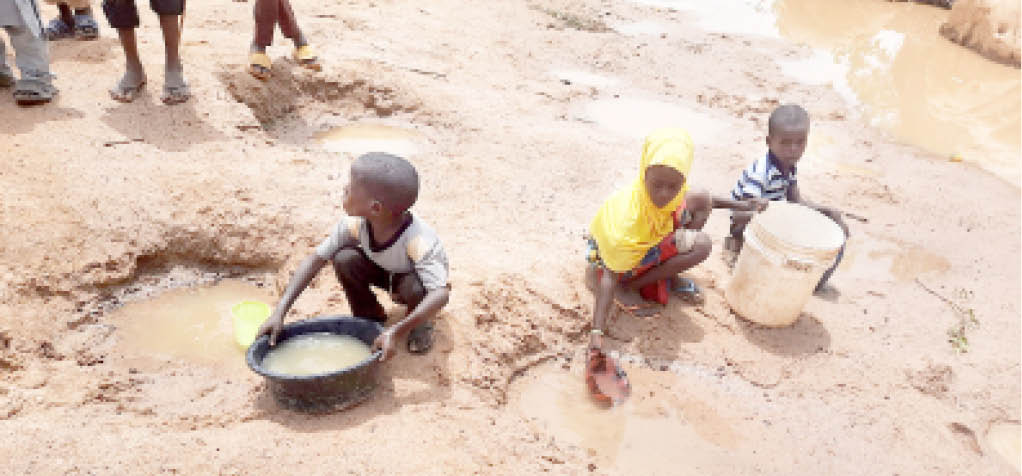Scores of people were admitted at hospital, while a two-year-old died, as a result of a sudden outbreak of cholera in Kalajanga village of Akko Local Government Area of Gombe State.
The outbreak, which struck Kalajanga and other communities in Garko ward of the LGA about three weeks ago, has so far claimed the lives of the two-year-old child and six others, with one person still on admission at the Federal Teaching Hospital, Gombe.
North East Trust gathered that over 76 people received treatment and were discharged at the Bogo Model PHC.
According to the Commissioner for Health, Dr Habu Dahiru, the cholera outbreak was attributed to drinking of contaminated water by the victims.
“The onset of rainy season at times heralds the period of cholera outbreaks due to drinking contaminated water. Therefore, it is easily spread in the community if control measures are sub-optimal,” he said.
When our correspondent visited Kalajanga village, it was observed that the village, with a population of over 1,500 people, depends largely on stream water from a valley on its outskirt.
The water leaves the people of the village prone not only to cholera and typhoid but other deadly water-borne diseases.
Moreover, there is no healthcare facility in the village, not even a patent medicine store. The people depend on motorcycles to take their sick and pregnant women to nearby PHCs in Liji, Kwadon or BCGA.
A resident, Malam Abubakar Alhaji Kawu, said he lost his nephew to the disease after having diarrhoea and vomiting for three days without getting medical attention.
“The boy and my son got infected, it started with stomach ache which turned to vomiting and diarrhoea, and subsequently he became dehydrated. We started with first aid at home by giving him ORT, but when it got beyond our control we alerted the authorities. Fortunately for us he survived and is now recuperating at home after he was discharged from hospital,” he narrated.
According to him, his nephew couldn’t survive as he died before he could reach hospital.
Following the cholera outbreak in the village, the State Water Board has assigned a tank to deliver water to the people once daily, which is not enough to cater for the large population.
However, due to lack of access road the tanker stopped near the valley which is about a kilometre from the village, the children afterwards evacuated the water in small containers to the village.
According to a resident, Alhaji Buba Wayo, they have been neglected by successive military and civilian administrations since the creation of the state 25 years ago.
They have only one two-block primary school with three teachers including the headmaster posted by the Akko LGEA.
As such, children from surrounding villages of Wuro Bukar, Wuro Karal, Kaltanga and Pandaya have to trek over five kilometres to the nearest secondary school in Tabra village.
However, because of inadequate teachers and absenteeism by those posted to the school, most of the over 200 pupils of the school have dropped out.
“The teachers cover only primary 1-3, so the students of primary 4-6 end up playing in the classes even if they go to the school. That has discouraged many parents causing them to stop sending their children to school.
“Also, our only source of water is a non-functional borehole and the contaminated water at the valley, which we rely along with our animals for cooking, drinking and washing our clothes,” Wayo complained.
Another problem bedeviling people of Kalajanga is lack of access road. The bush path leading to the village cannot be used by car, so residents of the village have to rely on commercial motorcyclists.
Despite being only two kilometres from the road that leads to Kalshingi and about two kilometres to the one via the Gombe southern bypass road, the people are disconnected from Gombe metropolis, a distance of less than 10 kilometres.
The village head, Malam Jauro Adamu, urged government to come to their aid by providing basic amenities that would make their lives easier and comfortable.
He however commended the state’s Ministry of Health for promptly providing medical assistance to the victims of the cholera outbreak.

 Join Daily Trust WhatsApp Community For Quick Access To News and Happenings Around You.
Join Daily Trust WhatsApp Community For Quick Access To News and Happenings Around You.


